 W
W2052 – A Global Forecast for the Next Forty Years is a 2012 book describing trends in global development. It is written by Jørgen Randers and is a follow-up to The Limits to Growth, which in 1972 was the first worldwide report by the Club of Rome.
 W
WAmazon Watershed : the new environmental investigation is a 1991 book by British writer and environmental and political activist, George Monbiot.
 W
WAnimal, Vegetable, Miracle: A Year of Food Life (2007) is a non-fiction book by Barbara Kingsolver detailing her family's attempt to eat only locally grown food for an entire year.
 W
WApollo's Fire: Igniting America's Clean Energy Economy is a 2007 book by Washington State Governor Jay Inslee and researcher Bracken Hendricks. Inslee first proposed an Apollo-scale program, designed to galvanize the nation around the urgent goal of solving the environmental and energy crisis, in the Seattle Post-Intelligencer in 2002. Eventually Inslee co-authored Apollo's Fire, in which he says that through improved Federal policies the United States can wean itself off of its dependence on foreign oil and fossil fuel, create millions of Green-collar worker jobs, and stop global warming. Along these lines, he has been a prominent supporter of the Apollo Alliance.
 W
WThe Blue Economy: 10 years – 100 innovations – 100 million jobs is a book by Gunter Pauli. The book expresses the ultimate aim that a "Blue Economy business model" will shift society from scarcity to abundance "with what is locally available", by tackling issues that cause environmental and related problems in new ways.
 W
WA Blueprint for Survival was an influential environmentalist text that drew attention to the urgency and magnitude of environmental problems.
 W
WClean Tech Nation: How the U.S. Can Lead in the New Global Economy is a 2012 book written by Ron Pernick and Clint Wilder. The book surveys the expansion of clean technology and renewable energy over the past decade. It tracks the growth of wind power and solar photovoltaics and shows that these markets grew 20 fold from 2000 to 2010. Factors which are driving the global expansion of clean tech are identified, as are the new economic opportunities which are being created. China, the United States, and Germany are leading the way. Clean Tech Nation is the sequel to the 2007 book The Clean Tech Revolution.
 W
WThe Clean Tech Revolution: The Next Big Growth and Investment Opportunity is a 2007 book by Ron Pernick and Clint Wilder, who say that commercializing clean technologies is a profitable enterprise that is moving steadily into mainstream business. As the world economy faces challenges from energy price spikes, resource shortages, global environmental problems, and security threats, clean technologies are seen to be the next engine of economic growth.
 W
WThe Coal Question; An Inquiry Concerning the Progress of the Nation, and the Probable Exhaustion of Our Coal Mines is a book that economist William Stanley Jevons wrote in 1865 to explore the implications of Britain's reliance on coal. Given that coal was a finite, non-renewable energy resource, Jevons raised the question of sustainability. "Are we wise," he asked rhetorically, "in allowing the commerce of this country to rise beyond the point at which we can long maintain it?" His central thesis was that the supremacy of the United Kingdom of Great Britain and Ireland over global affairs was transitory, given the finite nature of its primary energy resource. In propounding this thesis, Jevons covered a range of issues central to sustainability, including limits to growth, overpopulation, overshoot, energy return on energy input (EROEI), taxation of energy resources, renewable energy alternatives, and resource peaking—a subject widely discussed today under the rubric of peak oil.
 W
WCradle to Cradle: Remaking the Way We Make Things is a 2002 non-fiction book by German chemist Michael Braungart and US architect William McDonough. It is a manifesto detailing how to achieve their Cradle to Cradle Design model. It calls for a radical change in industry: a switch from a cradle-to-grave pattern to a cradle-to-cradle pattern. It suggests that the "reduce reuse recycle" methods perpetuate this cradle-to-grave strategy, and that more changes need to be made. The book discourages downcycling, but rather encourages the manufacture of products with the goal of upcycling in mind. This vision of upcycling is based on a system of "lifecycle development" initiated by Braungart and colleagues at the Environmental Protection Encouragement Agency in the 1990s: after products have reached the end of their useful life, they become either "biological nutrients" or "technical nutrients". Biological nutrients are materials that can re-enter the environment. Technical nutrients are materials that remain within closed-loop industrial cycles.
 W
WThe book Environmental Principles and Policies: An Interdisciplinary Introduction, written by Professor Sharon Beder, examines six well-known environmental and social principles that have been used at the international and national level. It uses them to evaluate the new wave of market-based policy instruments that have been introduced in many countries.
 W
WThe First Global Revolution is a book written by Alexander King and Bertrand Schneider, and published by Pantheon Books in 1991. The book follows up the earlier 1972 work-product from the Club of Rome titled The Limits to Growth. The tagline of "The First Global Revolution" is, A Report by the Council of the Club of Rome. The book was intended as a blueprint for the 21st century putting forward a strategy for world survival at the onset of what they called the world's first global revolution.
 W
WThe concept of The Fortune at the Bottom of the Pyramid originally appeared as an article by C. K. Prahalad and Stuart L. Hart in the business journal Strategy+Business. The article was followed by a book with the same title that discusses new business models targeted at providing goods and services to the poorest people in the world. It makes a case for the fastest growing new markets and entrepreneurial opportunities being found among the billions of poor people 'at the bottom of the [financial] pyramid'. According to Bill Gates, it "offers an intriguing blueprint for how to fight poverty with profitability."
 W
WThe Green Collar Economy: How One Solution Can Fix Our Two Biggest Problems is a 2008 book by Van Jones. It outlines a plan for simultaneously solving socioeconomic inequality and environmental problems. The book has received favorable reviews from Al Gore, Nancy Pelosi, Laurie David, Paul Hawken, Winona LaDuke and Ben Jealous. The Green Collar Economy is the first environmental book written by an African-American to make the New York Times bestseller list.
 W
WGreenhouse Solutions with Sustainable Energy is a 2007 book by Australian academic Mark Diesendorf. The book puts forward a set of policies and strategies for implementing the most promising clean energy technologies by all spheres of government, business and community organisations. Greenhouse Solutions with Sustainable Energy suggests that a mix of efficient energy use, renewable energy sources and natural gas offers a clean and feasible energy future for Australia.
 W
WThe Integral Urban House was a pioneering 1970s experiment in self-reliant urban homesteading. The house was located 1516 5th St. in Berkeley, California. The founders were California State Architect Sim Van der Ryn and Bill & Helga Olkowski, authors of the City People's Guide to Raising Food, and the project was run by the Farallones Institute.
 W
WAn Introduction to Sustainable Development is a 2007 Earthscan book which presents sustainable development as a process that "meets the needs of the present generation without compromising the ability of future generations to meet their own needs". This textbook examines the environmental, economic, and social dimensions of sustainable development by exploring changing patterns of consumption, production, and distribution of resources. Case studies include coastal wetlands; community-based water supply and sanitation systems; and sustainable energy, forest, and industrial development.
 W
WThe Limits to Growth (LTG) is a 1972 report on the exponential economic and population growth with a finite supply of resources, studied by computer simulation. Commissioned by the Club of Rome, the findings of the study were first presented at international gatherings in Moscow and Rio de Janeiro in the summer of 1971. The report's authors are Donella H. Meadows, Dennis L. Meadows, Jørgen Randers, and William W. Behrens III, representing a team of 17 researchers.
 W
WOperating Manual For Spaceship Earth is a short book by R. Buckminster Fuller, first published in 1969, following an address with a similar title given to the 50th annual convention of the American Planners Association in the Shoreham Hotel, Washington D.C., on 16 October 1967.
 W
WOur Common Future, also known as the Brundtland Report, was published on October 1987 by the United Nations through the Oxford University Press. This publication was in recognition of Gro Harlem Brundtland's, former Norwegian Prime Minister, role as Chair of the World Commission on Environment and Development (WCED).
 W
WThe Power of Half: One Family's Decision to Stop Taking and Start Giving Back is a book written by Kevin Salwen and his teenage daughter Hannah in 2010.
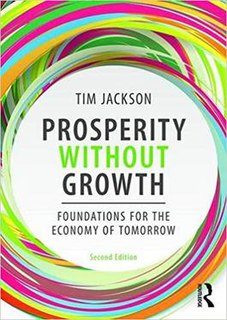 W
WProsperity Without Growth is a book by author and economist Tim Jackson. It was originally released as a report by the Sustainable Development Commission. The study rapidly became the most downloaded report in the Commission's nine-year history when it was published in 2009. The report was later that year reworked and published as a book by Earthscan. A revised and expanded edition was published in January 2017.
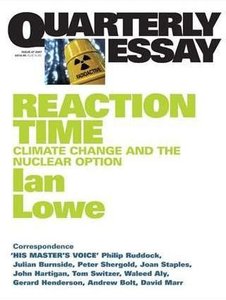 W
WReaction Time: Climate Change and the Nuclear Option is a book by Professor Ian Lowe which was officially launched by science broadcaster Robyn Williams at the Writers' Festival in Brisbane in September 2007. The book is about energy policy, and Lowe argues that nuclear power does not make sense on any level: economically, environmentally, politically or socially.
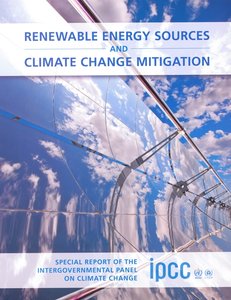 W
WThe United Nations Intergovernmental Panel on Climate Change (IPCC) published a special report on Renewable Energy Sources and Climate Change Mitigation (SRREN) on May 9, 2011. The report developed under the leadership of Ottmar Edenhofer evaluates the global potential for using renewable energy to mitigate climate change. This IPCC special report provides broader coverage of renewable energy than was included in the IPCC's 2007 climate change assessment report, as well as stronger renewable energy policy coverage.
 W
WSmall Is Beautiful: A Study of Economics As If People Mattered is a collection of essays by German-born British economist E. F. Schumacher. The phrase "Small Is Beautiful" came from a principle espoused by Schumacher's teacher Leopold Kohr (1909–1994) The concept is often used to champion small, appropriate technologies or polities that are believed to empower people more, in contrast with phrases such as "bigger is better", or "small is beautiful, but small".
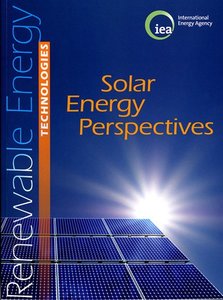 W
WSolar Energy Perspectives is a 2011 book by the International Energy Agency.
 W
WSustainable Value: How the World's Leading Companies Are Doing Well by Doing Good is a book by Chris Laszlo published in 2008 by Stanford University Press (US) and Greenleaf Publishing Ltd. (UK).
 W
WPatrick Dixon is an author and business consultant, often described as a futurist, and chairman of the trends forecasting company Global Change Ltd. He is also founder of the international AIDS agency ACET and Chairman of the ACET International Alliance.
 W
WA Thousand Barrels a Second: The Coming Oil Break Point and the Challenges Facing an Energy Dependent World is a 2007 book by Canadian energy economist and columnist Peter Tertzakian that describes the multiple pressures forcing an upending of oil’s dominant role in the global energy supply mix and conjectures about how economic, social and technological innovation will drive the inevitable adjustment process.
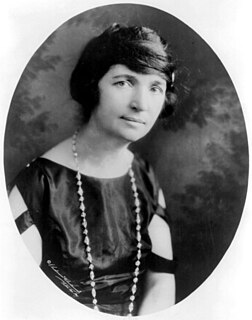 W
WMargaret Higgins Sanger was an American birth control activist, sex educator, writer, and nurse. Sanger popularized the term "birth control", opened the first birth control clinic in the United States, and established organizations that evolved into the Planned Parenthood Federation of America.
 W
WWorldchanging: A User's Guide for the 21st Century is a book about environmental concerns and practical actual responses. It is a compendium of the solutions, ideas and inventions emerging today for building a sustainable, livable, prosperous future. In November 2006, Worldchanging published a survey of global innovation, with a foreword by Al Gore, design by Stefan Sagmeister and an introduction by Bruce Sterling. It has received praise, was a winner of the "Green Prize" for sustainability literature, and is being translated into French under the title Change Le Monde, German and several other languages. Harry N. Abrams, Inc., the publisher of the hardcover edition, listed it among their 50 best selling titles in July 2008.